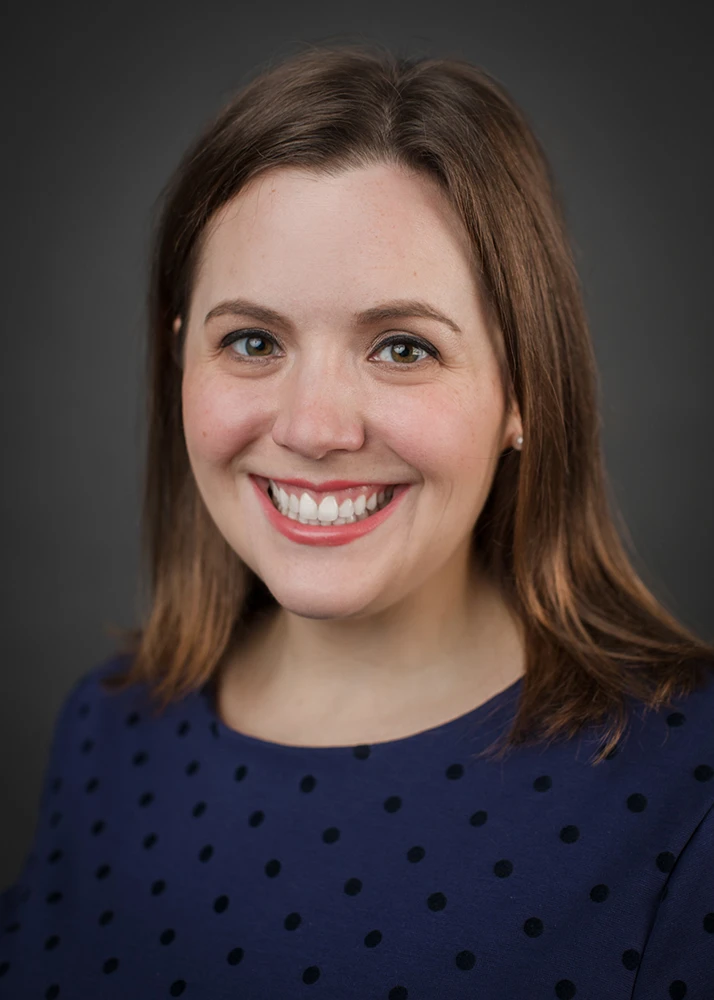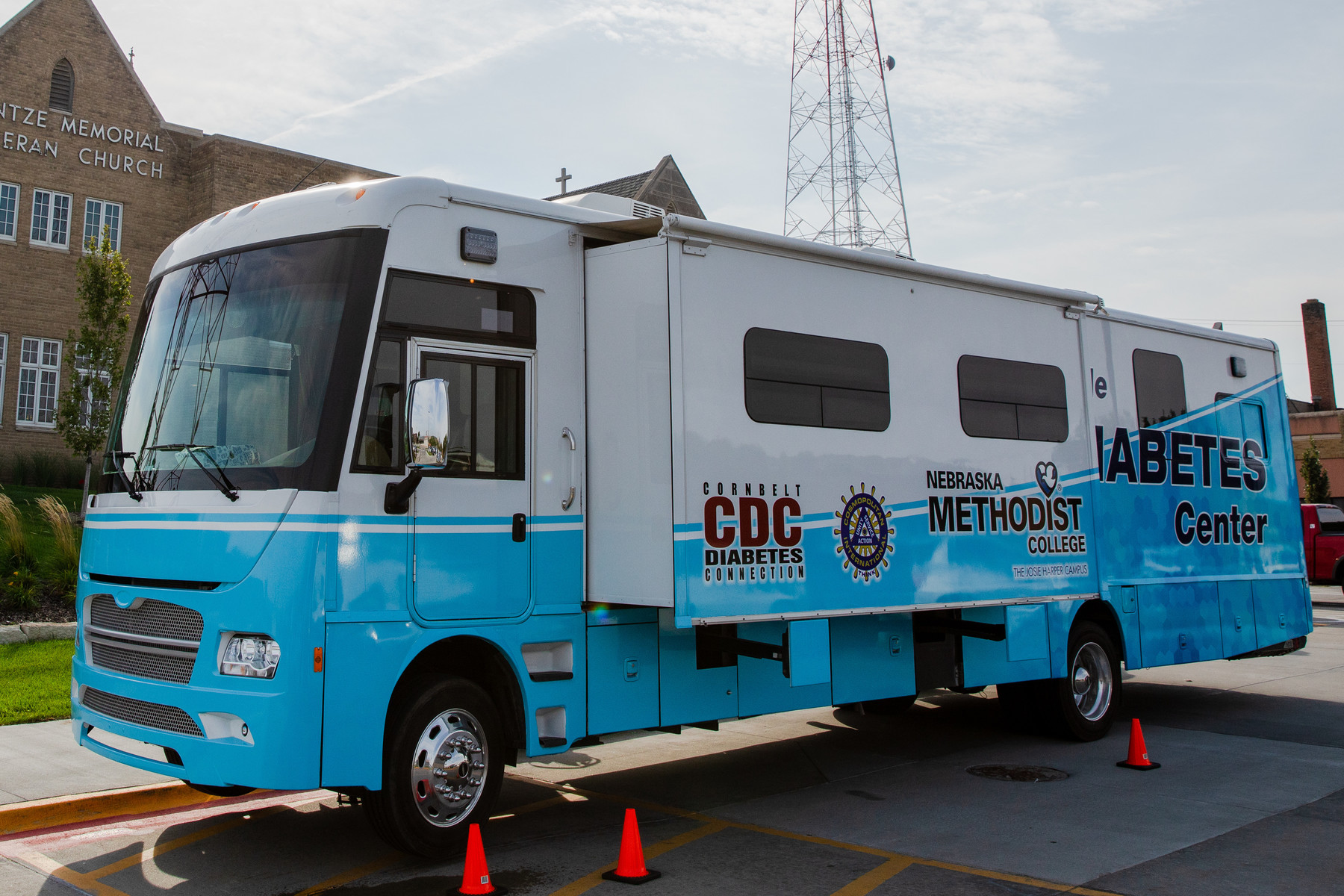
Inspiring Stories
Vaccines on Wheels: Mobile Diabetes Center Brings COVID-19 Vaccines to Underserved Populations
Published: April 26, 2021
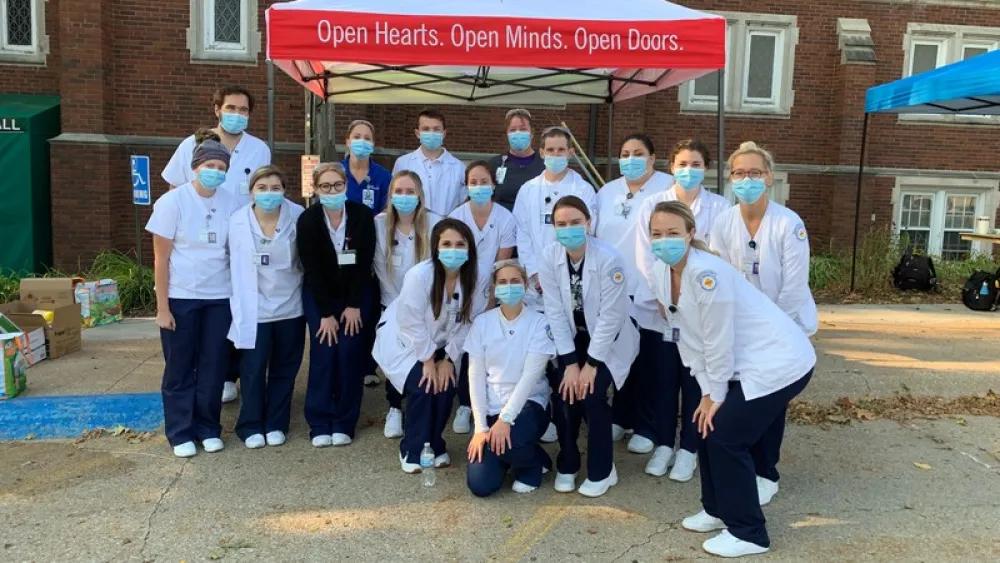
Thanks to a partnership between Nebraska Methodist College (NMC) and the Cosmopolitan Club’s Cornbelt Diabetes Connection, the college’s Mobile Diabetes Center – a custom-built 38-foot-long RV – has been providing community health screenings to underserved populations in urban and rural areas since 2011.
But when the COVID-19 pandemic began, NMC was forced to pump the brakes on how it delivered health screenings, lead testing, flu vaccinations and health education.

Kiley Petersmith, MSN, RN, CPEN, CPN, director of community engagement for NMC, focused on figuring out what was next: “If we weren’t utilizing our resources to do screenings, how could we best continue to serve our populations, promote health and do what we could to address the pandemic?”
The answer arrived with the approval of the COVID-19 vaccine. Petersmith had no doubt that the Mobile Diabetes Center should help with vaccine rollout.
“We wanted to be a part of it,” she said.
Since February, NMC and Methodist Health System have utilized their existing network of community partners and relationships to administer more than 1,500 COVID-19 vaccines to high-risk populations and those more likely to face barriers in accessing the vaccine.
“Our numbers are a lot smaller than the mass clinics, but we’re reaching communities that might not get vaccinated otherwise,” Petersmith said.
‘The Reward Was the Vaccine’
Working with the Douglas County Health Department, the Mobile Diabetes Center ran its first COVID-19 vaccine clinic on Feb. 3 at Open Door Mission, vaccinating 71 eligible residents and staff members. Petersmith is proud that Open Door Mission was one of the first homeless shelters in the country to receive vaccines.
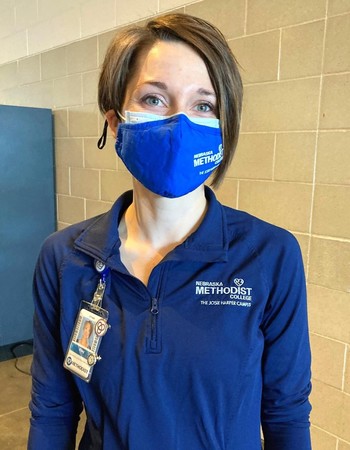
For Petersmith, starting with Open Door Mission just made sense – because of the strength of the existing relationship and because of how high-risk and invisible the homeless population can be.
Steve Frazee, senior program director at Open Door Mission, described a year of challenges and changes in which every process had to be rethought – how guests slept, how they lined up for dinner, how they got to their jobs, etc.
“Not only did the residents have the trauma that brought them here and the trauma of being homeless, but then they had the additional trauma of the pandemic,” Frazee said. “But the homeless community that resided here responded incredibly well.”
“I was on edge,” said resident Ralph Gil. “But we take care of each other here. It’s like a family.”
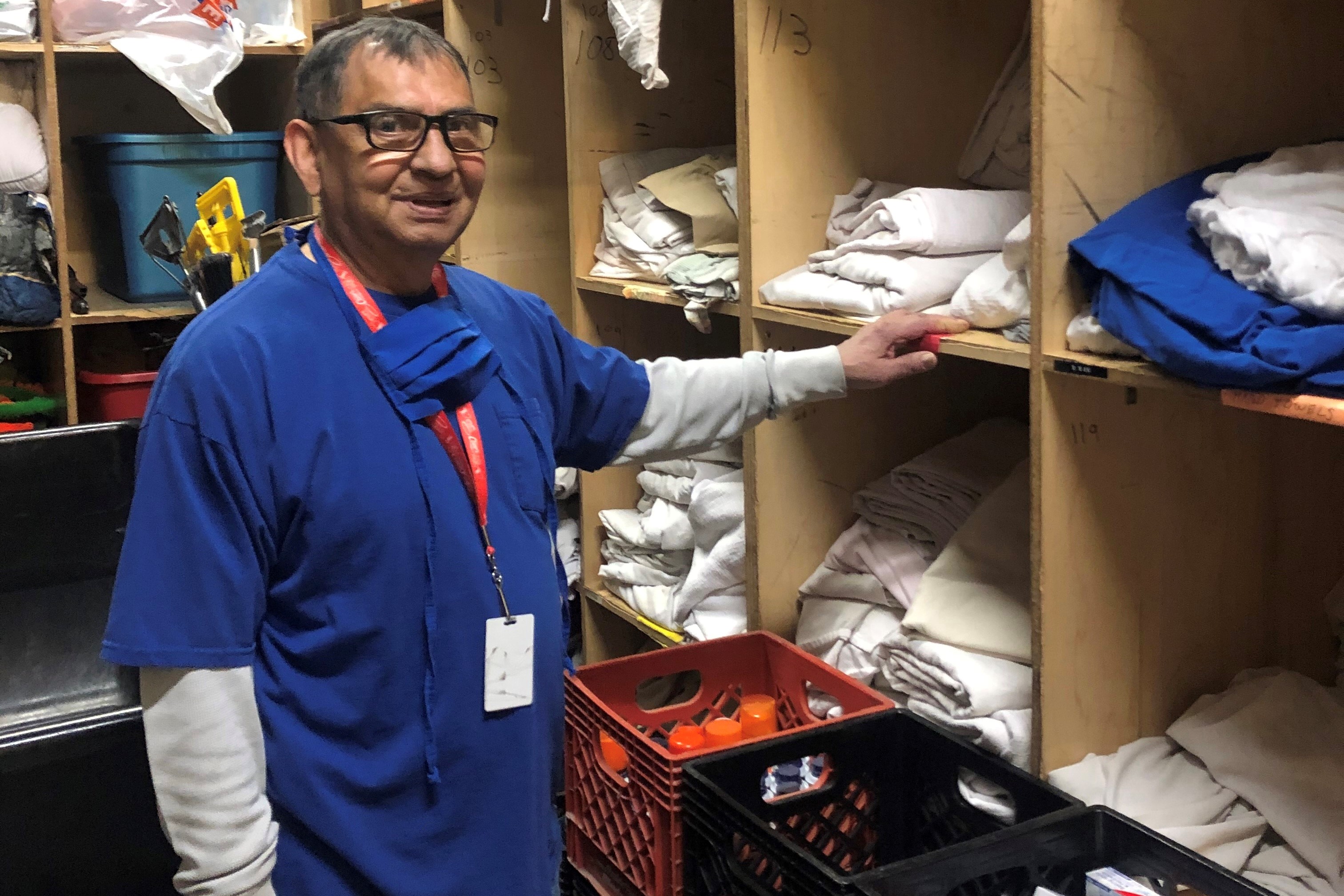
Gil volunteers as caretaker of the linen room and manages janitorial supplies. He also handles the linens for guests in COVID-19 quarantine and isolation. He said it was hard work keeping the shelter even cleaner than usual this past year while fearing for himself and the daughter and granddaughter he couldn’t see during the pandemic.
“The reward was the vaccine,” he said.
“The vaccine was very well received,” Frazee said. “It began to set people at ease. A lot of people just wanted to do something – and this was something you could do to protect yourself and others.”
Terry Jo Crouse, RN, health and wellness director at Open Door Mission, praised the partnership with NMC and Methodist and their commitment to public health. Frazee called working with Methodist a constant joy and NMC students “wonderful examples of what students should be.” Both are grateful for Petersmith prioritizing vaccines for the shelter’s guests.
“Kiley does a phenomenal job,” Crouse said. “She’s super conscientious and really does advocate for our population.”
Value in Being on Wheels
Petersmith looks forward to getting back to business as usual with the Mobile Diabetes Center, as diabetes and other comorbidities didn’t disappear with the pandemic. But for now, the goal is to get the vaccine to as many community partners as possible.

She said there’s value in being on wheels – going directly to organizations with an established trust and rapport with the populations they serve. Meeting people where they are also eliminates technology, transportation, language and other barriers. In addition to Open Door Mission, NMC has run clinics at the Omaha Housing Authority, Siena Francis House, the Salvation Army, the Consulate of Mexico, the Intercultural Senior Center and The Simple Foundation, among others.
“I give all the credit to our community partners for the work they’re doing,” Petersmith said. “They’re doing a lot to set up these clinics and advocate for their communities.”
She’s also proud of the students and volunteers staffing the vaccine clinics. For NMC students especially, it’s a unique experience.
“Not only are they learning pandemic response, but they’re also learning how to address health by going to clients and being in the space that they typically live and thrive in,” she said.
Volunteer Tahnee Soukup, a senior at NMC, has always admired the Mobile Diabetes Center and its mission to break down barriers to health care. As a busy student and mother of two, this has been the first semester she’s been able to volunteer.
“That’s always what I wanted to do as a health care professional – to go out into the community and not just end things at the hospital,” she said. “It all starts outside the hospital, and that’s really what I love about nursing.”
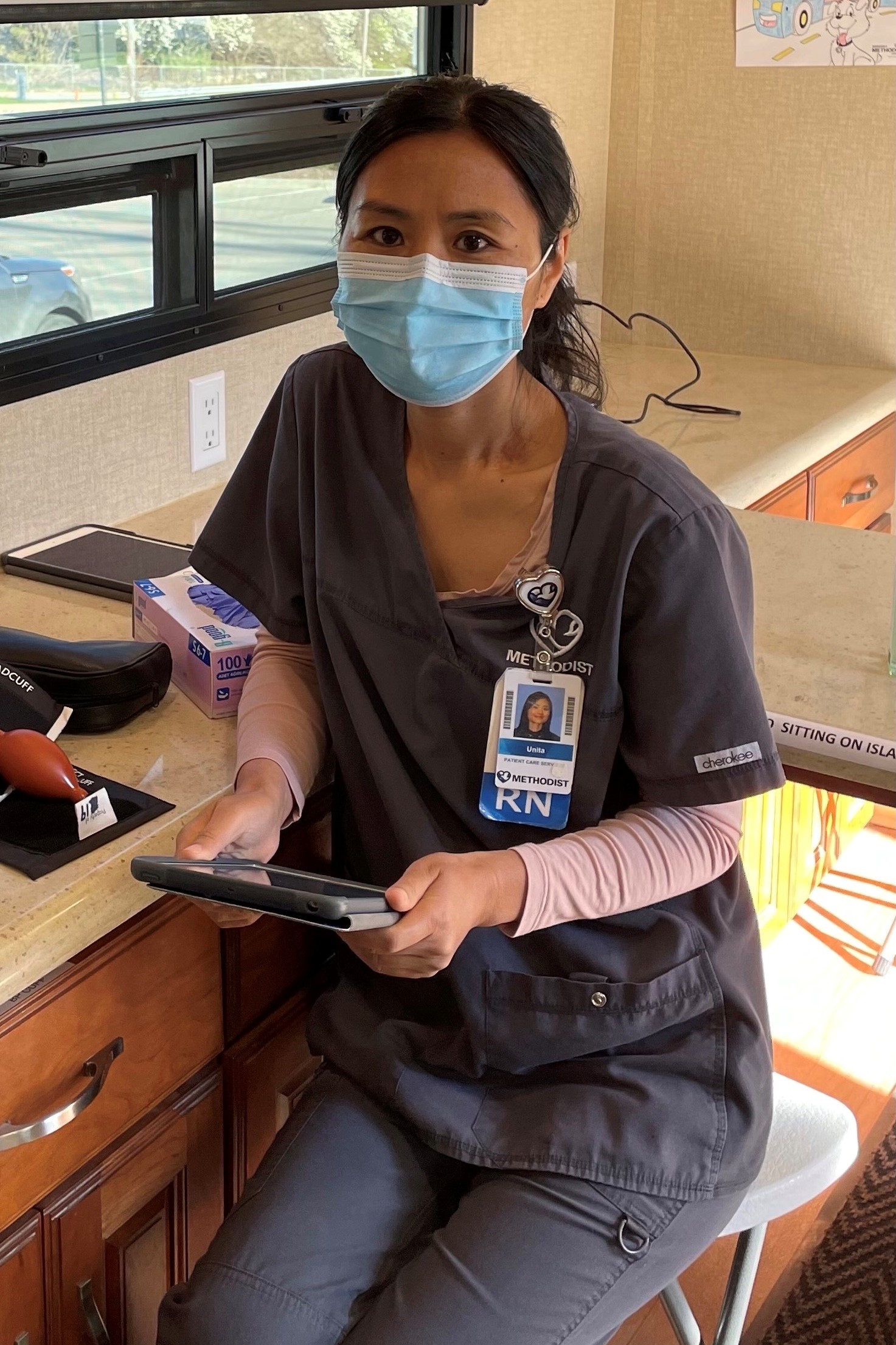
Unita Kham, RN, is one of several volunteers at the clinics from Methodist Hospital’s Acute Care for Elders Unit. As a nurse who cares for a high-risk population, she said the COVID-19 vaccine has given her hope for her patients. And volunteering at the Mobile Diabetes Center clinics has been a rewarding experience for her.
“It’s good to see Methodist nurses, nursing assistants, students and teachers taking time to give back to the community – especially people who are marginalized,” she said. “It’s a reminder that I can make time. Once you go to one, you realize what you’re missing out on.”
Humbling and Satisfying
For community members like Gil, vaccines on wheels means that he can see his daughter and granddaughter again.
“It feels good. It feels safe,” he said. “It’s a different feeling being able to touch them and kiss them and know that I’m safe and won’t be spreading anything to them.”
He knows people who are hesitant to get the vaccine. One person asked him: “Why fix what’s not broke?”
“That’s not the point,” Gil said. “The point is you’re safe.”
When she’s able to step away from scheduling and breathe, Petersmith feels good about the work that’s been done – even on a one-on-one basis.
“I talked to a 78-year-old woman recently who’s scared of getting the vaccine,” she said. “It was really humbling to be able to have a conversation with her and talk through some of those fears and help her overcome them. And then to have the power to say, ‘Here’s where we’re going to be in the community.’ It’s a very satisfying feeling to be able to help.”
More Resources
- Looking for a COVID-19 vaccine? Learn where to go in Nebraska and Iowa.
- Read how the Methodist Community Health Clinic is breaking down barriers to care.
- Learn more about NMC’s National Diabetes Prevention Program classes.

